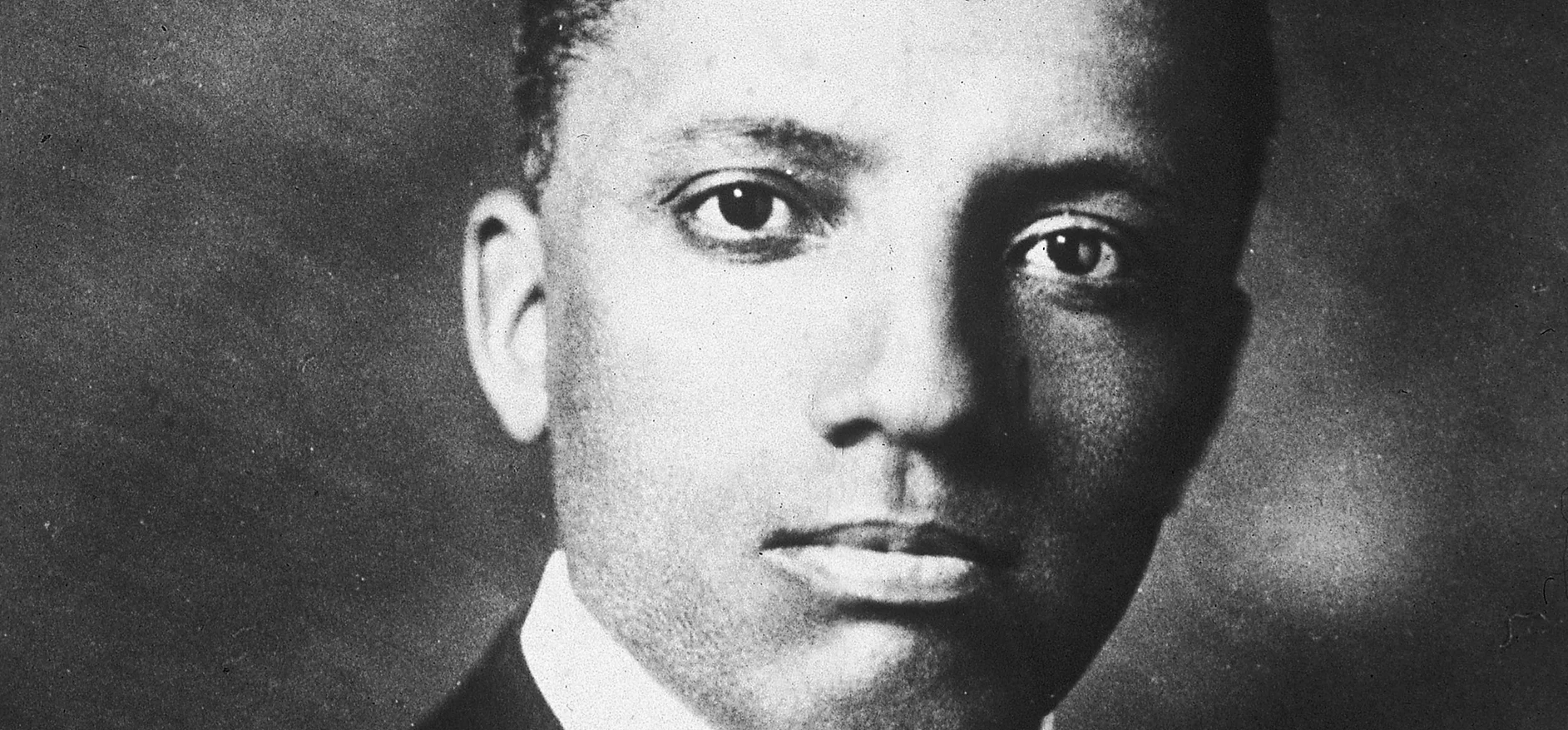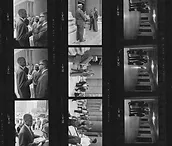On September 9, 1915, months before the death of Booker T. Washington, Carter G. Woodson formed the Association for the Study of Negro Life and History (ASALH).
At a time when African American history was marginalized in mainstream American education and inaccessible to many African American students, ASALH coordinated nationwide efforts to document, preserve, and educate the public about Black history.
These endeavors continue today in the Journal of African American History, Black History Bulletin (K-12 curricula), and Black History Month. For these reasons, many have called Carter G. Woodson the “Father of Black History.”

Carter Godwin Woodson was born in Buckingham County, VA in 1875. He was the son of two coal miners, James and Anne Eliza, who were formerly enslaved. During his early years, Woodson worked as a coal miner, sharecropper, and farmhand.
Often, he read the newspaper to his father and fellow miners who were unable to read. These experiences deepened his commitment to Black racial uplift. He went on to use his formal education to address the practical needs of Black communities.

Photo by Bettmann Collection/Getty Images
In 1912, Woodson completed his Ph.D. in History at Harvard University. He then taught in the Washington D.C. public schools where he observed the absence of African American history from high school education. That absence, in concert with his experience of racism at Harvard, were part of what motivated Woodson to establish ASALH.
Between 1919 and 1922, Woodson held faculty and administrative positions at Howard University and West Virginia State. During these years, Woodson witnessed the increasing reluctance of university presidents and white benefactors to support the educational mission of ASALH.
In 1922, Woodson left higher education to focus his attention on promoting the study of Black history, recruiting financial support from ASALH’s Black readership, and publishing Black scholars in the Journal of Negro History.
In February 1926, ASALH created Negro History Week as a youth-centered celebration of Black history and culture. Black women educators, such as Mary McCleod Bethune and Mary Church Terrell, led the effort to introduce Black history to Black children. Each year, the year-long study of Black history would culminate in Negro History Week productions of art, oratory, music, poetry, and theater.

Photo by Afro Newspaper/Gado/Getty Images
However, near the end of his life, Woodson observed that the pageantry of the holiday began to overshadow the sustained commitment to studying Black history. For Woodson, celebration required study, and education required service.
In 1933, Woodson published his provocative work, Miseducation of the Negro, which critiqued the impact of American higher education on a growing class of educated Blacks—businesspeople, clergy, educators, politicians—who, according to Woodson, were unfit and unwilling to contribute their talents to Black racial uplift.
Woodson argued that the miseducation of Black professionals led them to prioritize individual ambition and personal achievement above the pressing need and noble cause of Black racial uplift. He built upon his earlier ideas about Black self-reliance by establishing specific proposals for the Black professional class to contribute their talents to the Black community.
When Carter G. Woodson died in April 1950, his educational, cultural, and social impact was firmly established. The May 1950 issue of Negro History Bulletin carried the sentiments of schoolchildren, parents, scholars, and donors who attested to Woodson’s successful promotion of “Negro History” in academia, in K-12 education, and in African American cultural life.
A decade after Woodson’s death, Negro History Week was renamed Black History Month. In the late 1960s, Black youth affiliated with the Black Power Movement urged the creation of academic departments, colleges and universities, and secondary schools devoted to teaching Black history.

marking the observance of National Afro-American History Month, Washington D.C., February 2, 1984.
Photo by Mark Reinstein/Corbis Historical/Getty Images
In 1976, these efforts influenced ASALH to officially expanded Negro History Week into Black History Month. That year, President Gerald Ford issued the first presidential acknowledgment of the holiday in his “Message on the Observance of Black History Month.” By the 1980s, Black History Month received annual recognition on the national calendar.
Within the Black community, educators and activists preserved the work of Woodson and ASALH by embracing the study of Black history as an act of Black political activism.

Photo by Afro Newspaper/Gado/Getty Images

Listen to the author:
Learn more:
Jacqueline Goggin, Carter G. Woodson: A Life in Black History (Louisiana State University Press, 1993)
Pero Gaglo Dagbovie, Carter G. Woodson in Washington, D.C.: The Father of Black History (The History Press, 2014)





